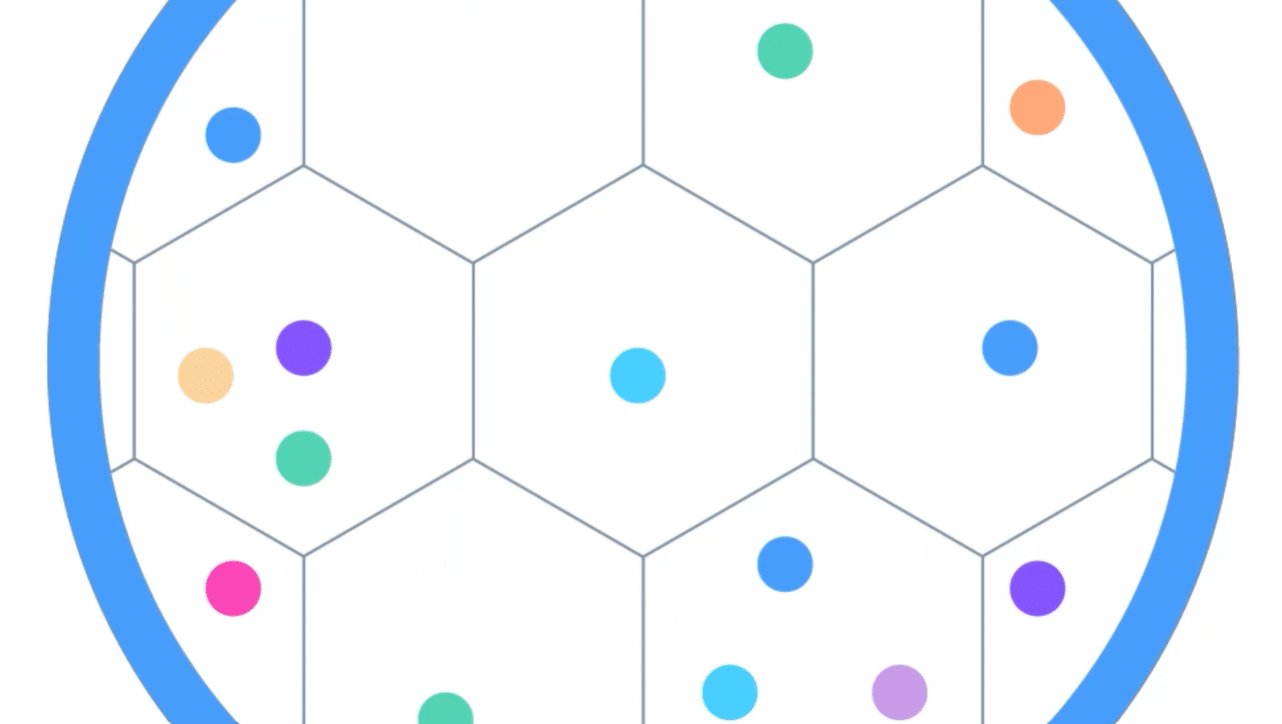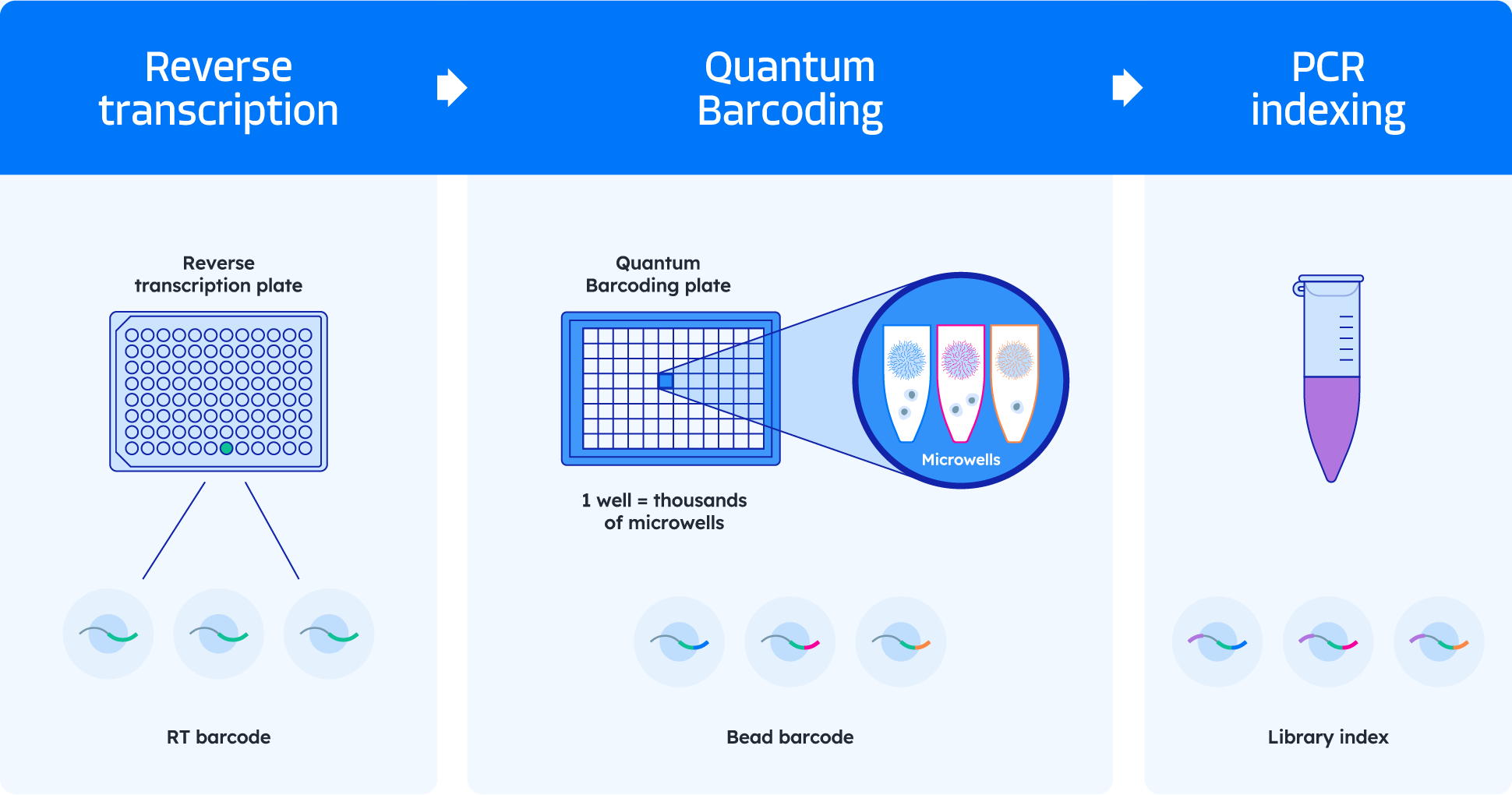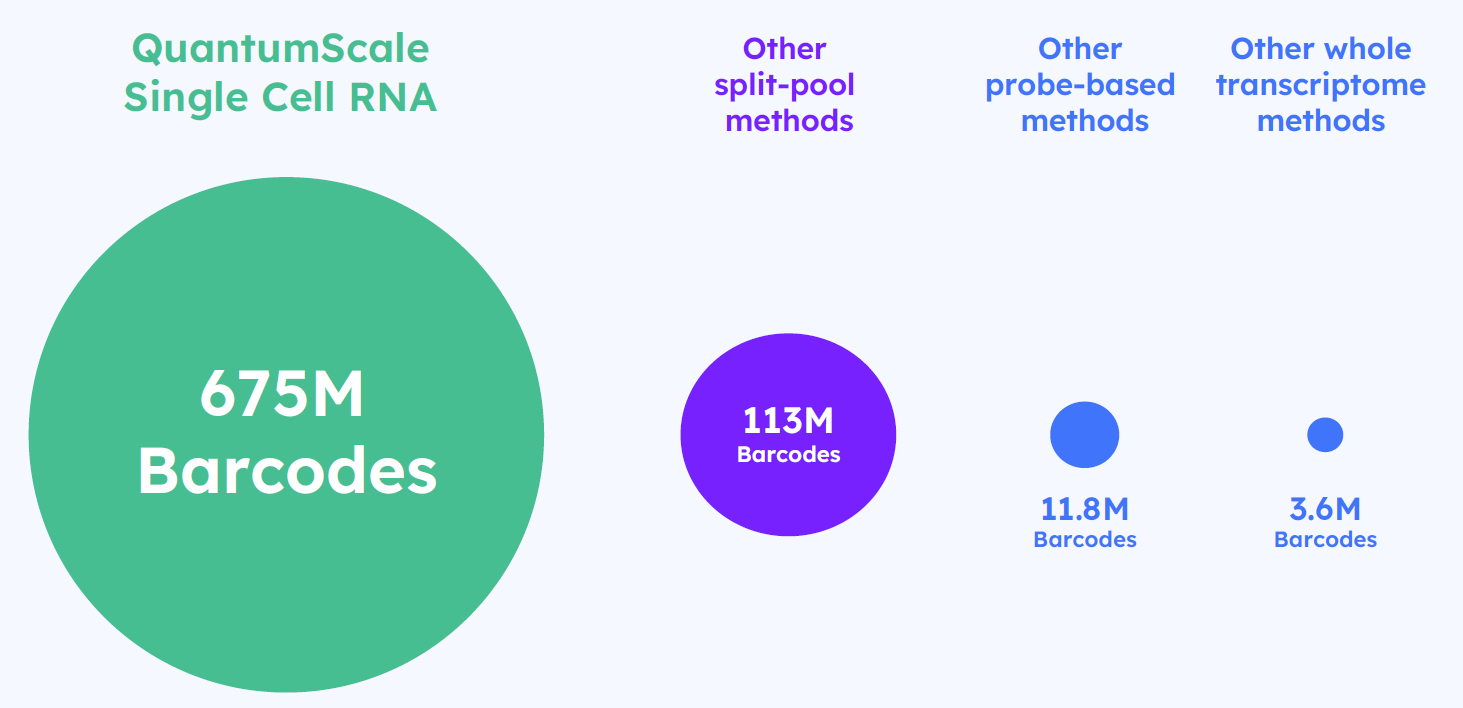Quantum Barcoding technology: Revolutionary single cell at any scale
Supercharge your single cell experiments with industry-leading sample throughput while minimizing your time at the bench with the QuantumScale platform. Novel Quantum Barcoding plates and uniquely barcoded beads provide an unprecedented level of single cell barcoding instrument-free and with minimal effort, enabling you to flexibly scale the number of samples, timepoints, conditions, and replicates, with ease. Leave droplet and traditional combinatorial indexing methods behind and join us for the next great leap in single cell.

Watch how it works
Unlike combinatorial indexing strategies that require additional split-and-pool steps for increasing the barcode space and therefore the number of unique cells that can be analyzed, Quantum Barcoding consolidates many levels of barcoding, cutting the amount of hands-on time by over 75%.
From sample to insights: Powerful Quantum Barcoding technology behind a simplified workflow

1. Reverse transcription: Cells or nuclei undergo reverse transcription, adding a RT barcode and molecular barcode to each transcript (not shown). All wells are pooled and redistributed into the Quantum Barcoding Plate.
2. Quantum Barcoding: Bead-based barcodes are ligated to cDNA in microwells. All wells are pooled and redistributed into tubes
3. PCR indexing & final library construction: Library indices are added during PCR amplification.
Barcode Space
Quantum Barcoding enables a
massive scale up of the barcode
space compared to other single
cell workflows - over 675 million
unique barcode combinations
when analyzing millions of cells.

ScalePlex: Multiplexing without the hassle
Sample multiplexing can be a tedious process where cells or nuclei often require multiple rounds of washes, taking up precious time and resulting in sample loss. With ScalePlex, our unique oligo-based barcodes can be added to individual samples during fixation, eliminating wash steps until after pooling. ScalePlex is species- and sample type-agnostic and requires no upfront optimization, making it simple to use right out of the box.
Explore all of our single cell products
Powering the next generation of single cell with one flexible platform to meet any scale and research vision.
- Easily scale with a range of kit sizes for proof-of-concept studies to massive projects, from 84,000 to 4 million cells
- The most cost-effective single cell RNA seq solution on the market per cell, sample and experiment
- Easily combine 10 to >9,000 samples or conditions in a single run and eliminate batch effects with ScalePlex
Scale Bio’s Single Cell Methylation Kit revolutionizes epigenetics research as the first commercial solution for detecting single cell DNA methylation states.
- Illuminate cell type-specific methylation signatures
- Interrogate hundreds of thousands of CpG and CH sites per cell
- Capture thousands of cells per run with seamless sample multiplexing
- Maximize your sequencing budget and expand the number of samples profiled by generating target-enriched libraries.
Amplify a CRISPR guide sequence derived from a CROP-style vector alongside your standard RNA Sequencing Library.
- Greater than 90% of cells assigned with CRISPR guide
- Detect your specific CROP-seq guide using our custom RT design protocol
- Capture from 125,000 to 500,000 cells with minimal hands-on time and an efficient workflow
- Run thousands of samples or conditions in a single experiment easily with ScalePlex


